J. J. van Oosterzee Theological Studies Collection (8 vols.)
Digital Logos Edition
This product has been transferred from Community Pricing to Pre-Pub. The actual funding level may be lower than it appears, which could delay production. The amount of funding still needed will be evaluated and updated soon.
Overview
J. J. van Oosterzee, nineteenth-century preacher, scholar, and teacher, was one of Holland’s foremost Christian figures. He made great contributions to theological science studies. Many of Oosterzee’s works were translated into English because of their deep impact in the European evangelical world. The J. J. van Oosterzee Theological Studies Collection includes eight of his prominent works. In it, Oosterzee analyzes dogmatics, Christology, homiletics, liturgics, catechetics, poimenics, and Pauline, Petrine, and Johannine theology. Additional volumes defend the verity and credibility of the Gospel of John, present Moses’ and Jesus’ lives, and provide daily devotional readings.
With the Logos Bible Software edition of the J. J. van Oosterzee Theological Studies Collection, you’ll get instant access to Oosterzee’s discoveries and insights. Key concepts and ideas integrate with your digital encyclopedias, dictionaries, commentaries, and interactive maps, making this collection powerful and easy to access—a rich guide to biblical and practical theology.
Key Features
- Contains eight volumes from one of Holland’s greatest scholars, theologians, and pastors
- Includes Oosterzee’s famous Christian Dogmatics, Practical Theology, and Theology of the New Testament
- Provides keen insight on theological science
Praise for J. J. Van Oosterzee
[Van Oosterzee] is one of the most eloquent preachers and profound scholars of Holland . . . His great qualities entitle him to measure weapons with the haughtiest skeptics of Europe.
—Methodist Quarterly Review
Dr. Van Oosterzee is quite at the head of the evangelical preachers, commentators, and theologians of Holland. He early achieved distinction in the pulpit, whence he was transferred to the chair of theology, from both which positions he has given forth numerous valuable contributions to apologetics, biblical exegesis, and dogmatic and practical divinity. . . . he has become favorably know to American scholars and divines.
—The Biblical Repertory and Princeton Review
Dr. J. J. van Oosterzee . . . is one of the most distinguished divines in the Reformed Church of Holland. He has, almost from the commencement of his ministry, occupied a prominent position in the church, and has exerted a powerful and extensive influence in favor of evangelical truth. As a pulpit orator he has no superior in his own country. . . . As a writer on scientific theology he has attained great distinction, not only in Holland but also in Germany. . . . [His] works are fresh, original and profound, bearing the impress of their author’s genius and piety, and evincing his intimate acquaintance with the whole range of German literature, on the subjects of which he treats.
—The American Presbyterian Review
Product Details
- Title: J. J. van Oosterzee Theological Studies Collection
- Author: J. J. van Oosterzee
- Volumes: 8
- Pages: 3,587
Individual Titles
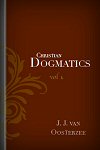
Christian Dogmatics has been hailed as J. J. Oosterzee’s most important work. “Lucid in arrangement and method, fresh in style, and evangelical in sentiment,” this volume represents the Evangelical Church’s theology. Oosterzee confronts the subject matter thetically and apologetically—rather than polemically—and brings clarity to oft-confusing topics. Volume one provides a 74-page introduction to dogmatics—its character, sources, history, and claims. It analyzes God’s nature and works, as well as man’s original nature.
This large octavo . . . contains a grave, thoughtful, and charitable survey of theology . . . It is well arranged, and the tone is throughout excellent. . . . Dr. van Oosterzee is a thoroughly Christian controversialist, and evidently most desirous of stating the views of opponents with fairness and temper, even where he differs the most widely.
—Church Quarterly Review
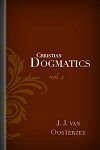
Christian Dogmatics has been hailed as J. J. Oosterzee’s most important work. “Lucid in arrangement and method, fresh in style, and evangelical in sentiment,” this volume represents the Evangelical Church’s theology. Oosterzee confronts the subject matter thetically and apologetically—rather than polemically—and brings clarity to oft-debated topics. Volume two analyzes man’s present condition, Christology, objective soteriology, subjective soteriology, ecclesiology, and eschatology.
This second volume . . . is, in its department, as important as the first. It is a noble beginning to have two such works put into the hands of English readers. . . . The general characteristic of the book is great lucidity of well-balanced statement. It is preeminently a wise and reverent, as well as a very able book.
—The British Quarterly Review
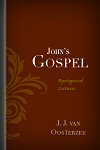
The four lectures in this volume were delivered in 1866 at the Odeon in Amsterdam, Holland, as a response to prior lectures given on the biblical account of Jesus’ life by contemporary professors and preachers. Clear and practical, these apologetic lectures on John’s Gospel come from a Christologico-theological standpoint and defend the verity of the Gospel and the credibility of the Gospel history—particularly the Johannean Christ.
Contents:
- Authenticity of John’s Gospel
- John and the Synoptic Gospels
- John’s Account of Christ’s Miracles
- The Johannean Christ
The argument . . . is stated with much freshness and conclusiveness. He sheds touches of light on a succession of points; and to those who have been perplexed by the plausibly stated difficulties of John he suggests very plausible solutions.
—Methodist Quarterly Review
These lectures were prepared to vindicate the supernatural origin and supernatural truths of the fourth Gospel, always the special target for the assaults of anti-supernaturalists, and all who are possessed by the ‘fanaticism of negation.’ . . . We think these lectures admirably adapted to their purpose of parrying skeptical objections to the supernatural in revelation, miracles, and grace, as these are leveled at the Gospel of John. . . . We are glad to see how well our author handles those who deny the historical truth and credibility of the miracles.
—The Biblical Repertory and Princeton Review
We heartily commend this little work to our readers. It is timely, earnest, spiritual, and convincing.
—The British Quarterly Review
It is the work of a theologian profoundly acquainted with the Gospel history, and who reverently beholds in Jesus, the God-man, the Redeemer and Savior, the light and life of the world, by whom the true life is not merely declared but revealed, acquired, and restored.
—The Reformed Presbyterian Magazine
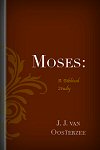
This volume is comprised of 12 sermons on various incidents or events in Moses’ life. While Oosterzee presents a full pictorial and dramatic description of each scene, his main focus is to provide practical, contemporary applications from the events.
Contents:
- Complete life of Moses
- Childhood: Exodus 2:1–10
- The Training-Time: Acts 7:22–29
- The Call: Exodus 3:4
- The Journey: Exodus 14:15
- The Intercession: Exodus 32:11
- The Festive Time: Exodus 33:18
- The Stumbling: Numbers 20: 11
- The Retrospect of Life: Psalm 90
- The Cursing Prophet: Numbers 24:3
- The Expectation of Salvation: Deuteronomy 18:15
- The Refusal: Deuteronomy 3:26
- The Decease: Deuteronomy 34:5
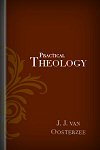
This volume analyzes, in depth, various aspects of practical theology, including homiletics, liturgics, catechetics, and poimenics. It also provides a history and literature of practical theology.
Here we have a genuine Dutch book, portly, solid, and judicious. . . . We have seen no work on practical theology which it excels it in appreciation of the importance of the theme, in soundness and depth of thought, or in pure evangelical sentiment, and none which equals it in comprehensiveness of plan, or in the symmetry and completeness with which the several parts are elaborated. . . . The style of the book is sufficiently simple, easy, and pleasing, not only for scholars, but for all thoughtful readers.
—The Methodist Review
The book abounds with apt quotations, fine allusions, and sententious apothegms which greatly increase its interest and usefulness.
—The Presbyterian Review
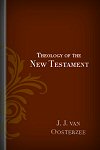
Originally prepared for use in his own classes at the University of Utrecht, Oosterzee’s Theology of the New Testament provides a clear and simple look at New Testament theology’s definition, history, method, divisions, and requirements. Oosterzee distinguishes between New Testament biblical theology and Christian dogmatics and analyzes various aspects of New Testament theology, including its Old Testament basis, Jesus’ theology in the synoptical Gospels and the Gospel of John, Pauline, Petrine, and Johannine theology, the apocalypse, and more.
The work before us is characterized by candor, discrimination, sound and independent judgment, and just interpretation.
—The American Presbyterian Review
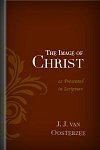
This volume focuses on Christ’s life. It examines the Son of God in three “various periods of existence and activity”: Jesus before his incarnation, the Christ in the flesh, and the God-man in glory.
Dr. Oosterzee’s book must be regarded as a rich treasury of profitable truth for all who aspire to an acquaintance with ‘the mind which was in Christ Jesus.’
—The London Quarterly Review
We have read every page of this book, and now heartily commend it to the readers of the Review. The theme is chief and central in Christian thought. Its treatment here is comprehensive, reverent, sympathetic, and often eloquent.
—The Baptist Quarterly Review
In this work [Oosterzee] seeks to combine the various scriptural references to our Lord into one full portraiture. The book is a living book, and touches living questions. It is full of faith, rising sometimes to enthusiasm. It is eloquent, sometimes falling into rhetorical declamation. It is vigorous and suggestive, and will be useful, not only in passing controversies, but in suggestions of the Divine and transcendent aspects of our Lord’s character work.
—The British Quarterly Review
With intellectual and spiritual power he combines the revelations of Scripture as to Christ before his appearance in the flesh, during his life on earth, and in glory, in order to enable us to answer the question, ‘What think ye of Christ?’
—The British and Foreign Evangelical Review
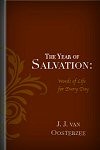
Oosterzee’s popular devotional book The Year of Salvation spans the festival portion of the year, beginning with Advent on the first day in December to May 31. Each daily reading includes a Scripture passage and reflection.
A work of great value and interest. To the clergy these readings will be found full of suggestive hints for sermons and lectures; while for family reading or for private meditation they are most excellent. The whole tone of the work is thoroughly practical, and never becomes controversial.
—Church Bells
The text is illustrated by apposite and thoughtful remarks, which will be found both convenient and profitable, not only in the family circle, but also for private meditation.
—Christian Observer
The very best religious exposition for every-day use that has ever fallen in our way.
—Bell’s Weekly Messenger
The author’s mind is deeply imbued with Scripture principles, and overflows with words, rich, warm, and devotional in their character.
—Ecclesiastical Gazette
This charming and practical book of household devotion will be welcomed on account of its rare intrinsic value, as one of the most practical devotional books ever published.
—Standard
Massive of thought, persuasive, earnest, and eloquent.
—Literary Churchman
Simple, terse, and practical; and will, we are sure, be read with profit and pleasure by many.
—Leeds Mercury
Characterized by evangelical fervor, and by a beautiful spirit of peacefulness.
—Nonconformist
This is a book for all sections of the Christian church. . . . It is sure to be prized both for its eloquence and the freshness with which it meditates upon familiar and precious truths.
—Reformed Presbyterian Magazine
As might have been expected from so clear and vigorous a thinker, every passage in this book is valuable either as an exposition or a suggestion.
—Christian Union
The conceptions are rich, full, and free, and beautifully expressed.
—Primitive Methodist Magazine
About J. J. van Oosterzee
J. J. van Oosterzee (1817–1882) was a Dutch evangelical preacher, teacher, and theologian. He attended the University of Utrecth, Netherlands from 1835 to 1839. Between 1841 and 1862, Oosterzee served as a pastor at Eemnes-Binnen, Alkmaar, and Rodderdam. In 1863, he was appointed professor of biblical and practical theology at the University of Utrecht, where he taught until his death. In 1877, Dutch law forbid faculty to teach on biblical, dogmatic, and practical theology, so Oosterzee instead taught on the philosophy of religion, New Testament introduction, and the history of Christian dogma. Oosterzee devoted much of his studies to theological science. Among his numerous published works are sermons, lectures, articles, and treatises.
Reviews
1 rating